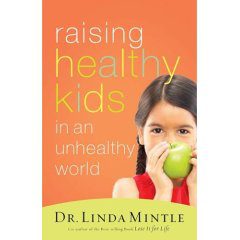Today, I am going on the news to talk about a group of video and print ads out out by Children’s Healthcare of Atlanta. Approximately, 40% of Georgia’s children are overweight, one of the highest obesity rates in American.
Health officials in Georgia feel like they need to do something drastic. Their decision to run ads of overweight kids talking about being bullied at school, having medical problems and asking mom why they are overweight has been met with controversy. One billboard shows an overweight girl with the caption, “Warning! It’s hard to be a little girl if you are not.”
Personally, I don’t think trying to shame kids and portray them as victims works well to help them lose weight. Yes, overweight kids are bullied, but plastering them on billboards and making them appear as victims is not a solution. Let’s get at the problems causing childhood obesity and focus on solutions.
I’ve been working in a community coalition focused on preventing childhood obesity for years. The problem has many layers and must be addressed multiple ways. Here are five:
1) Parents buy the food and make the choices to bring it in to the house. Parents are the ones who need strategies to cook better, find produce that is cheap enough to afford, and then model how to eat healthy. Three-year-olds do not go to fast food places and order fries, parents do. Kids model their eating habits from their parents. So we need to work with families, not just the children. The ads would be better if they showed a family talking about the impact of obesity.
2) Most parents do not even realize their children are overweight. That may seem hard to believe but it turns out to be true. We need to educate parents regarding BMI (body mass index) and medical complications associated with childhood obesity. The ads try to do this but the method will not work.
3) Kids need to move. Mrs. Obama gets it right on her let’s move campaign. Bring back PE, recess and physical activity in schools. Parents, get your kids off the video games and in the park. Say no to hours of television and sedentary living. This means families have to get up and move as well. City kids need safe places to play, parks with equipment that works, and sidewalks and green spaces.
4) Cities can do more to encourage healthy eating with community gardens, fresh produce in poor neighborhoods, less fast food in poverty areas, etc.
5) Cities can plan better with bike paths, public sidewalks and public spaces that are safe for kids to play.
These are just a few of the multitude of ideas my community coalition addresses on preventing childhood obesity. Getting kids and families to change their eating and exercise behavior is not going to happen by showing a bunch of kids who talk about being bullied and having disease. The reality of bullying and disease hasn’t changed behavior. The Georgia healthcare advocates are right–preventing childhood obesity will take drastic measures. But those drastic measures may be more effective by working with families and making policy that encourages healthy cities.
In my book, Raising Healthy Kids in an unhealthy world, I have a chapter on how to talk to your child if he/she is overweight and loads of practical help on how to prevent childhood obesity. The book is a manual for parents and gives multiple solutions on what parents can do to do with teasing, developmental concerns, body image and more. Order at the right, under my book links.



